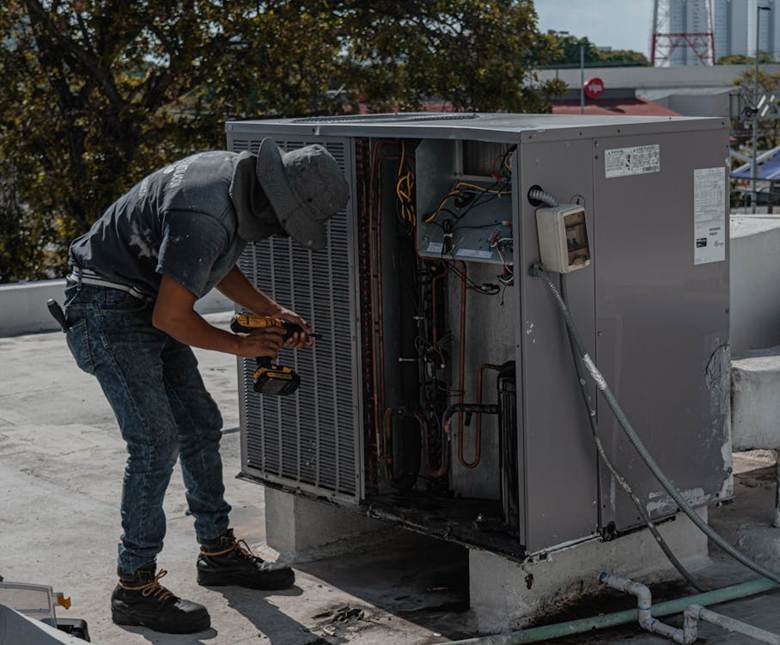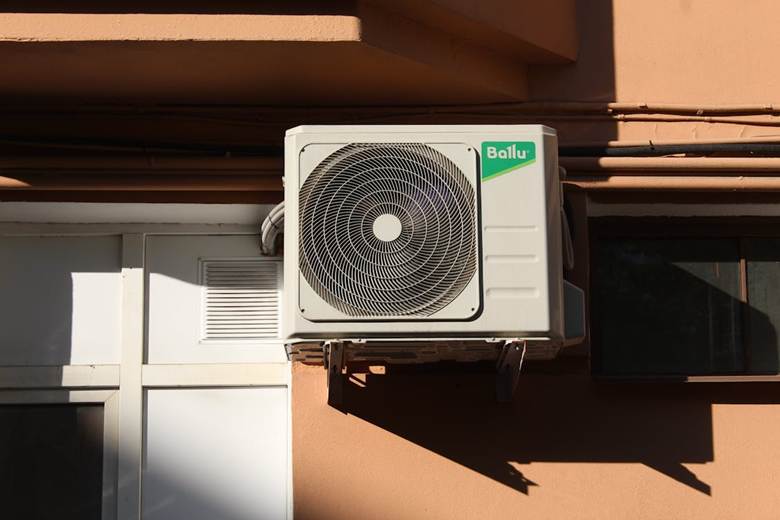When it comes to rental property management, amenities like in-unit laundry or a fresh coat of paint often steal the spotlight. But there’s one behind-the-scenes system that has more impact on tenant satisfaction than most landlords realize—your HVAC. When tenants are too hot in the summer or shivering in the winter, no amount of granite countertops is going to keep them around.
For landlords, this isn't just about comfort—it’s about avoiding turnover, complaints, and sometimes even lawsuits. HVAC systems aren’t just utilities; they’re lifelines for your reputation and rental income. That’s why more property managers are working with experts like Covenant Aire Solutions to stay ahead of seasonal issues and avoid getting caught off guard when tenants need heating or cooling the most.
Let’s dig into how HVAC performance directly affects your tenant relationships, your legal risks, and the overall value of your property. Plus, we’ll go over some practical, seasonal tips to keep your systems running smoothly.

Photo by José Andrés Pacheco Cortes from Pexels
When HVAC Goes Wrong, So Does Tenant Retention
The connection between comfort and tenant retention is no mystery. If your tenants are sweating through the summer or layering up indoors in January, they’re far more likely to start looking elsewhere when their lease ends.
Even worse? Some won’t wait. A serious HVAC issue—especially one that goes unresolved—can push tenants to break leases early, leave bad reviews, or in some cases, even sue.
Here’s what’s really at stake:
- Lease breaks: Tenants often have the legal right to break a lease if the unit is uninhabitable. No heat in a northern winter? That qualifies.
- Bad online reviews: Future tenants do read them, and an HVAC horror story can tank your rental’s appeal.
- City fines and violations: Some municipalities mandate heating and cooling standards. Fail to meet them, and you could face penalties.
- Emergency repair bills: A reactive approach often means calling a tech during off-hours, paying a premium, and possibly still upsetting the tenant.
Avoiding these situations starts with understanding the real impact of HVAC on your reputation and rent roll.
The Cost of Ignoring HVAC Maintenance
Some landlords still think of HVAC as a “fix it when it breaks” issue. But this reactive mindset is expensive in more ways than one.
Let’s break it down:
- Repairs cost more than prevention. Emergency HVAC fixes often come with after-hours premiums, rush fees, and longer tenant disruption.
- A single vacancy costs thousands. According to industry averages, turning over a unit can cost anywhere from $1,000 to $3,000 once you factor in lost rent, cleaning, repainting, and advertising.
- Legal exposure isn’t worth the risk. If a tenant ends up in court claiming you didn’t maintain safe living conditions, you could be looking at legal fees, fines, and months of stress.
Preventative HVAC care might seem like a small item on your to-do list, but it’s directly tied to your bottom line. In many cases, it’s the difference between stable occupancy and a revolving door of unhappy renters.
What Tenants Expect (Even If They Don’t Say It)
Many tenants may not think about HVAC until it fails, but their expectations are high. They assume their heat will work in the winter and the AC will keep them cool in the summer—and why shouldn’t they?
Here’s what modern tenants expect when it comes to heating and cooling:
- Quick response time if something goes wrong
- Regular filter replacements to ensure air quality
- Clear communication during maintenance or repairs
- Energy-efficient systems that don’t spike their utility bills
And here’s the real kicker: even if HVAC isn’t working perfectly, the communication around the issue can make or break their experience. Silence or delays during system failures will almost always be taken as negligence.
How HVAC Ties Into Legal Obligations
Depending on your state or local laws, landlords may be legally required to provide adequate heating (and in some places, cooling). The definition of “adequate” varies, but it’s typically based on maintaining a minimum indoor temperature.
Failing to meet those requirements can lead to:
- Breach of warranty of habitability claims
- Forced relocations at your expense
- Housing code violations
- Rent escrow or tenant withholding
Preventive maintenance and documentation can protect you from all of the above. Keep service records. Respond quickly to complaints. And make sure tenants have a clear way to report issues when they arise.
Seasonal HVAC Tips for Landlords
Want to stay ahead of problems? The best way is to think seasonally. Here’s a quick breakdown of what proactive HVAC care looks like throughout the year:
Spring
- Schedule a full AC system inspection and tune-up
- Replace filters and clean ducts if needed
- Check for any leftover damage from winter weather
- Test the thermostat and calibrate if needed
Summer
- Monitor cooling performance during heatwaves
- Make sure outdoor units are clear of debris
- Keep an eye on humidity levels—mold is a liability
- Remind tenants to report strange smells or weak airflow
Fall
- Inspect heating components and perform a furnace tune-up
- Clean vents and change filters again
- Test carbon monoxide detectors (especially for gas systems)
- Seal windows or doors that could leak air
Winter
- Respond immediately to any “no heat” calls
- Keep a contractor on standby for emergency visits
- Remind tenants how to maintain airflow (e.g., not covering vents)
- Check for frozen pipe risks near HVAC units
Following this calendar won’t just reduce breakdowns—it shows tenants you care, which increases trust and loyalty.
Choosing the Right HVAC Partner
Trying to DIY or rely on a general handyman for HVAC issues often leads to delays, misdiagnoses, and repeat problems. Working with a professional HVAC service provider is essential—especially for landlords managing multiple units.
Look for a company that offers:
- Scheduled preventative maintenance plans
- Quick turnaround times for repairs
- Clear communication with both you and the tenant
- Experience with rental property systems and landlord needs
This is where Covenant Aire Solutions becomes a valuable resource. Their team understands the urgency of keeping tenants comfortable and the business risk of downtime. Having a trusted HVAC partner in place means you’re not scrambling for a fix when something fails.

Photo by Gustav Mahler from Pexels
Communication: The Unsung Hero of HVAC Success
Even the best-maintained system can hit a snag. When that happens, your tenant’s experience depends almost entirely on how well you communicate.
Here’s what tenants want to hear when there’s an HVAC problem:
- Acknowledge the issue quickly. Even if you don’t have an immediate fix, a fast response matters.
- Give a timeline. Let them know when help is arriving or when the part will be replaced.
- Follow up. After the fix, check in. Ask if the temperature feels better. Show you care.
This approach builds goodwill—and makes tenants more likely to renew, even after a temporary hiccup.
Final Thoughts: Heat, Trust, and Lease Renewals
If you’re still treating HVAC as an afterthought, you’re risking way more than a repair bill. You’re risking your relationship with your tenants, your legal standing, and your bottom line.
Renters today have options—and in a competitive rental market, the little things (like room temperature) quickly become big things. Investing in consistent HVAC maintenance, partnering with professionals, and keeping open lines of communication isn’t just smart property management—it’s smart business.
Because at the end of the day, comfort isn’t a luxury—it’s a lease renewal strategy.









